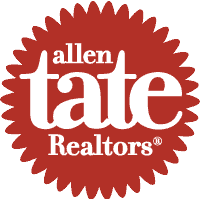Home buying
First time home buyer programs in North Carolina
You only get to buy your first home once. Why not make it as stress-free as possible?
With that goal in mind, we’ve put together a list of what you need to know about the national and statewide programs available to first-time home buyers in North Carolina.
Here are 6 of the best first time home buyer programs in North Carolina, one of which could help you achieve the milestone of first-time home ownership. Which one looks like it’s right for you?
NC Home Advantage Mortgage
First-time home buyers in North Carolina can benefit from the stable, fixed-rate mortgages offered by the NC Home Advantage Mortgage. Managed by the North Carolina Housing Finance Agency, the program also offers down payment assistance of up to 5% of the total loan. And through the NC 1st Home Advantage Down Payment Assistance Program, first-time buyers and military veterans can qualify for $8,000 in down payment assistance.
In order to qualify for this type of loan or for down payment assistance, you must be a legal U.S. resident, purchase the home in North Carolina, occupy the home as your principle residence within 60 days of closing and have a credit score of at least 640.
NC Home Advantage Mortgage with down payment assistance income limits
The income limits and mortgage products offered by the NC Home Advantage Mortgage Program vary by counties in North Carolina, but here’s a snapshot of the income limits for Mecklenburg County. Please keep in mind that with this program, income is total household income.
1 person: $79,000
2 people: $79,000
3+ people: $89,500
NC Home Advantage Mortgage with 3%- 5% down payment assistance income limits
The income limits and mortgage programs vary by counties, but to give you an example, here’s a snapshot of the income limits for Mecklenburg County. Keep in mind, income is total household income.
1 person: $89,500
2 people: $89,500
3+ people: $89,500
Mortgage Credit Certificates
The NC Housing Finance Agency issues Mortgage Credit Certificates, or MCCs, to first-time buyers, veterans, and people buying in specific geographic areas. (These certificates are also known as the NC Home Advantage Tax Credit.) The MCC provides a federal tax credit of 30% of the annual mortgage interest (50% for new construction homes). The savings will add up for each year you live in your home.
You are eligible for the MCC if you are a legal U.S. resident, a first-time buyer of a home in North Carolina, occupy the residence within 60 days of closing, and you meet certain income and home sale price limits. These limits will vary and are best explained by your lender. You can find a lender near you by contacting the NC Housing Finance Agency at 1-800-393-0988 or www.nchfa.com/home-buyers.
Thinking about buying a home soon? Click here to receive your free copy of our first-time home buyer ebook!
National programs for first time home buyers
Conventional Mortgage
If your credit score is at least 620 and you’ve been saving money for a down payment, a conventional mortgage could be the best choice. Thanks to the Federal National Mortgage Association (nicknamed Fannie Mae) and the Federal Home Mortgage Corporation (nicknamed Freddie Mac), first-time home buyers can enjoy an interest rate as low as 3% as long as the mortgage meets the government’s requirements.
If you’ve managed to sock away enough for a down payment of at least 20% of the cost of your home, you can avoid paying mortgage insurance, or PMI. (For example, that’s a $30,000 down payment on a $150,000 home.)
Your credit score is another factor to consider when applying for a conventional mortgage. Most lenders are looking for a minimum score of 620 in order to approve you for a conventional mortgage. Higher credit scores will earn you a better interest rate. For instance, a score around 740 will get you the best interest rate available.
USDA Loans
The U.S. Department of Agriculture offers these loans through the Rural Development Guaranteed Housing Loan Program. USDA loans require no down payment and are available to buyers in rural and suburban areas. The income limitations for these loans vary by region, and the ease of getting the loan increases with higher credit scores.
VA Loans
VA loans, also known as Veterans Affairs mortgages, are available to military members, veterans, reservists, National Guard members, and surviving spouses.
These loans are guaranteed by the U.S. Department of Veterans Affairs, and offer some noteworthy benefits to the home buyer, including no minimum credit score, no down payment, and no mortgage insurance. The interest rates on these loans also tend to be the lowest available.
The one catch is that VA loans require a funding fee – a one-time payment that helps offset the cost to taxpayers associated with those mortgage insurance and down payment benefits. Certain factors like the type of military service, and the amount of the down payment, will affect the amount of the funding fee.
Borrower assistance is another benefit to consider. If you have a VA loan and are struggling to pay your mortgage, the VA can negotiate on your behalf with the lender. Financial counselors provided by the VA can help negotiate repayment plans, loan modifications, and other options. The assistance number is (877) 827-3702.
FHA Loans
If your credit score and your down payment are on the low side, an FHA Loan could be your best option. The FHA, or Federal Housing Administration, allows a down payment percentage as low as 3.5% as long as your credit score is at least 580. If your credit score is in the 500 to 579 range, the FHA requires a down payment of at least 10% of the cost of the home. (That’s $15,000 for a $150,000 house.) FHA loans do require mortgage insurance.
There is no salary requirement for an FHA loan, but you do need to have two established credit accounts, such as a credit card and an auto loan. Delinquent federal debt or judgments, including tax-related judgments, will keep you from being approved for an FHA loan.
FAQ on first time home buyer programs in North Carolina
What credit score is needed to buy a house in NC?
Here are the minimum credit scores required to buy a home in North Carolina for the 5 most popular loan programs:
NC Home Advantage: minimum credit score of 640
Conventional mortgage: minimum credit score of 620
USDA: minimum credit score of 640
VA loans: minimum credit score of 580
FHA loans: minimum credit score of 580
Who pays closing costs in NC?
In a typical transaction, the buyers pay closing costs. Closing costs usually range from 2-5% of the home’s total purchase price.
Closing thoughts on first time home buyer programs in NC
Many municipalities in the state offer down payment assistance programs. For questions about first-time home buyer programs, or to become pre-approved, contact us.
Source: Allen Tate
Thinking of Buying a New Home?
New from the blog
Top 5 biggest mistakes first-time homebuyers make
Doing anything for the first time is difficult, let alone buying your first home. But don’t let the fear of the unknown keep you from missing out! Get your feet wet as you learn from five common mistakes many first-time home buyers wish they wouldn’t have made.
Are you getting the right home inspection?
Most homebuyers would agree that the home inspection on a potential purchase is probably the most important part of the process, however some buyers may not know is that there are multiple inspections that should be considered.
4 can’t miss tips to help you win a bidding war and be a competitive buyer
Tight inventory and increased buyer demand is still the story as we come to a close on the first quarter of 2022.




